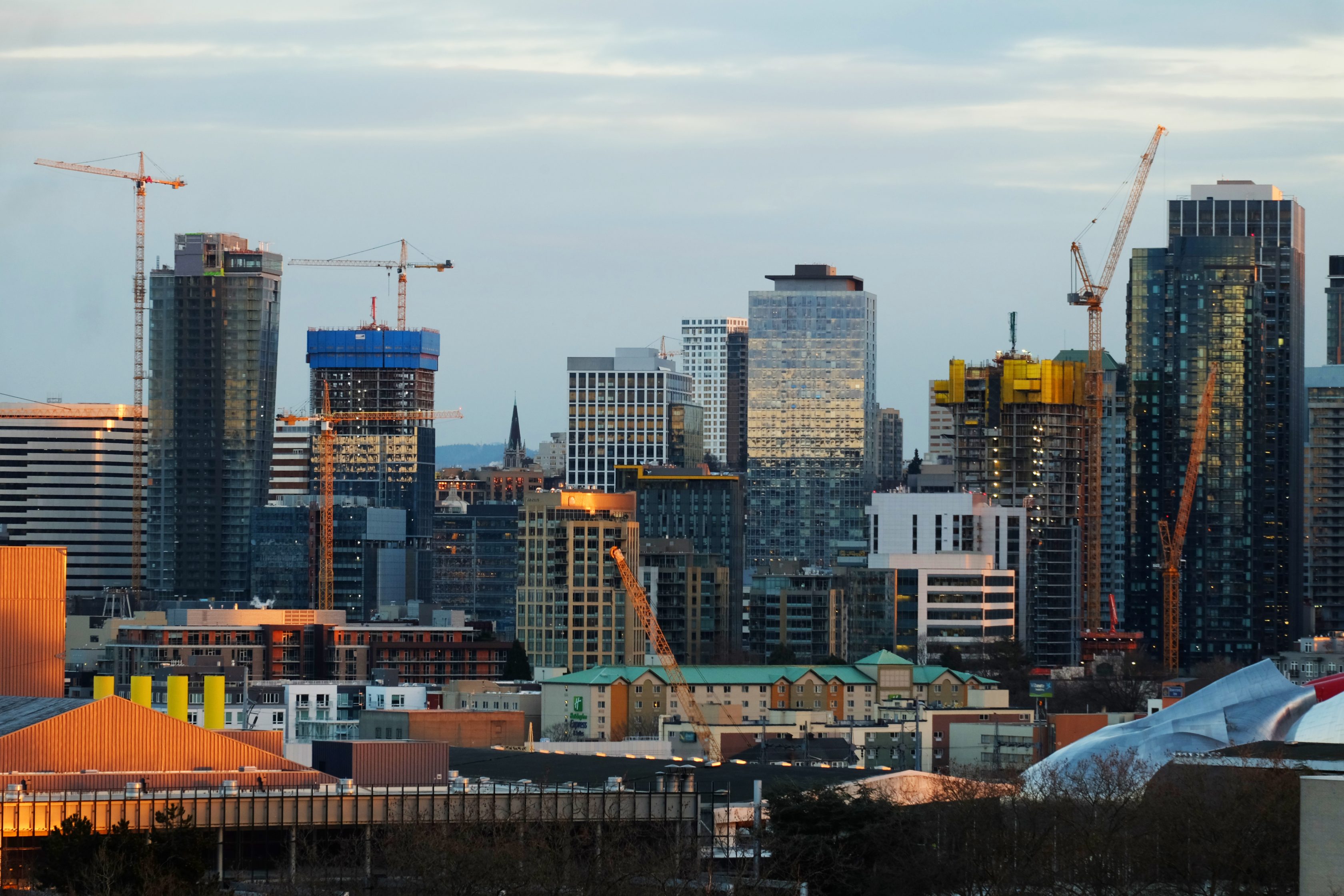In criticizing Fox “News,” the late Steve Jobs famously said, “The axis today is not liberal and conservative, the axis is constructive-destructive, and you’ve cast your lot with the destructive people.” Nationally, destructive policy comes from the right.
On the Planet Seattle, however, a good deal of destructive policy comes from the left. Chief example is the demand for construction impact fees by some on the City Council and among candidates for mayor and council posts. The claim is to “make growth pay for itself.” And the implication is that developers are getting a free ride.
In fact, private developers already pay a variety of taxes and fees, including new construction sales taxes, excise taxes, increased property taxes from turning a parking lot to a hotel or apartment building, and affordable housing fees in HALA rezoning. Office building developers pay a per-square-foot fee to fund child-care, preschools and day care centers, as well as a similar fee to create public open spaces downtown.
Jon Scholes, president of the Downtown Seattle Association, said the proposed impact fee “is a rent increase brought to you by the City Council.” If council members order a new fee, it would be passed on to end users. “One day, the Council is expressing concerns about affordability. The next day, they want to levy an impact fee that would hurt affordability.”
Indeed, growth has been paying for itself in this booming economy. For example, construction companies in Seattle paid $466 million in just the sales tax related to construction of buildings last year. Hotels, including new ones, paid $169 million in lodging taxes. A 2015 report found that a typical high-rise contributed $3.5 million in one-time construction revenues and $6.6 million in ongoing annual revenue.
This boom has allowed the city to increase its budget by a staggering 40 percent between 2013 and 2017, to $5.7 billion.
Loading down developers with a new impact fee would risk other unintended (?) consequences, chiefly sending development to Bellevue and elsewhere on the Eastside and even to the South Sound and Tacoma. In addition to hurting the city’s economy, more development in heavily car-dependent areas increases greenhouse gases that drive climate change. Sprawl is also inefficient because many areas lack the infrastructure of the city.
The more constructive approach is for politicians to ask how the increased revenue is being spent. As far as construction goes, the council would better spend its time ensuring more spacing between towers, view corridors to the Space Needle and overlays to protect older apartment and commercial buildings.
